Children and Youth (108 found)
Submission to the United Nations Universal Periodic Review on Refugees and Displaced Persons Burma/Myanmar
1. This submission focuses on Burma’s compliance with international human rights obligations in relation to Burma’s refugees and displaced persons safe, dignified and voluntary return. It draws on interviews conducted with a mixture of semi-structured individual interviews and focus groups with refugees from Mae La, Umpiem Mai, Ban Nai Soi, and Mae Ra Ma Luang refugee camps including women, youth and religious minority groups, Mon, Karenni, and Karen civil society groups, ethnic armed groups (EAGs), refugee committees, and international non-governmental organizations […]
• • •JADE: Myanmar’s “Big State Secret”
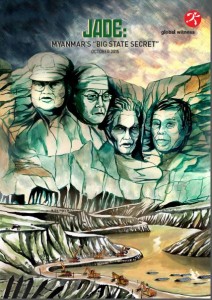 Since 2011, Myanmar’s rebranded government has told the world it is transitioning from a pariah state run by a ruthless military dictatorship to a civilian regime committed to wholesale political and economic reforms […]
Since 2011, Myanmar’s rebranded government has told the world it is transitioning from a pariah state run by a ruthless military dictatorship to a civilian regime committed to wholesale political and economic reforms […]
Myanmar: National report submitted in accordance with paragraph 5 of the annex to Human Rights Council resolution 16/21
1. During the First Cycle of UPR, the promotion and protection of human rights in Myanmar was reviewed on 27 January 2011 at the meeting of the Working Group on UPR […]
• • •Southeast Asia: Deadly Journeys – The Refugee and Trafficking Crisis in Southeast Asia
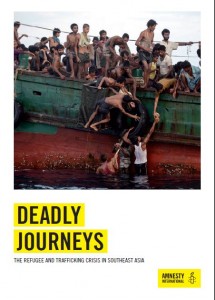 In May 2015 three boats carrying 1,800 women, men and children landed in Aceh, Indonesia. Most of the passengers were Muslim Rohingya, a persecuted religious and ethnic minority from Myanmar […]
In May 2015 three boats carrying 1,800 women, men and children landed in Aceh, Indonesia. Most of the passengers were Muslim Rohingya, a persecuted religious and ethnic minority from Myanmar […]
Disenfranchisement and Desperation in Myanmar’s Rakhine State: Drivers of a Regional Crisis
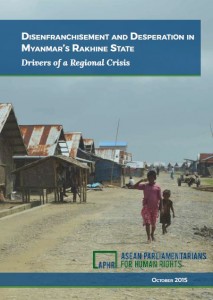 Political exclusion is exacerbating the already intense sense of desperation among Rohingya Muslims in Myanmar’s Rakhine State, and driving a regional crisis that ASEAN leaders are ill prepared to confront. Unless serious steps are taken to address the situation of deprivation and despair in Rakhine State, many Rohingya will have no other option but to flee in search of asylum elsewhere […]
Political exclusion is exacerbating the already intense sense of desperation among Rohingya Muslims in Myanmar’s Rakhine State, and driving a regional crisis that ASEAN leaders are ill prepared to confront. Unless serious steps are taken to address the situation of deprivation and despair in Rakhine State, many Rohingya will have no other option but to flee in search of asylum elsewhere […]
Burma: International Religious Freedom Report for 2014
Muslim, Christian, and other religious minorities faced physical abuse, arbitrary arrest and detention, restrictions on religious practice and travel, and discrimination in employment and access to citizenship […]
• • •Forced Displacements and Destroyed Lives around Upper Paunglaung Dam in Shan State, Myanmar
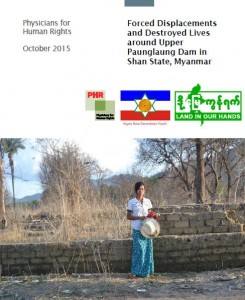 In this report, Physicians for Human Rights (PHR) builds on its previous research on land confiscations in Myanmar by using an epidemiological survey tool to assess the human rights, livelihood, and health impacts on communities displaced by the reservoir created by Paunglaung dam in southern Shan state […]
In this report, Physicians for Human Rights (PHR) builds on its previous research on land confiscations in Myanmar by using an epidemiological survey tool to assess the human rights, livelihood, and health impacts on communities displaced by the reservoir created by Paunglaung dam in southern Shan state […]
Submission to the United Nations Universal Periodic Review: Myanmar
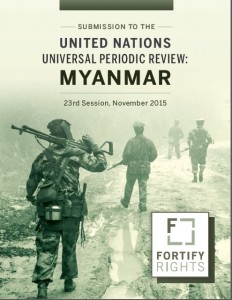 This report was originally submitted by Fortify Rights to the United Nations Office of the High Commissioner for Human Rights on March 21, 2015 for consideration in the Universal Periodic Review (UPR) of Myanmar’s human rights performance, which will take place November 9 at the U.N. Human Rights Council […]
This report was originally submitted by Fortify Rights to the United Nations Office of the High Commissioner for Human Rights on March 21, 2015 for consideration in the Universal Periodic Review (UPR) of Myanmar’s human rights performance, which will take place November 9 at the U.N. Human Rights Council […]
Burma Army shelling, killing and torture of civilians in Mong Pawn constitute war crimes
On September 12, 2015, about 100 Burmese government troops attacked Nawng Pa Deb village in Mong Pawn township, southern Shan State. They fired shells indiscriminately into the village, injuring four men and two women; one of the men later died from his wounds […]
• • •Freedom of Expression, Religion and Belief: As Freedom of Expression Shrinks, Discrimination is on the Rise
In the lead-up to the 2015 elections in Burma, religious minorities, especially the Muslim population, have been consistently subjected to state sponsored discrimination and violent abuse, while simultaneously denied representation in the political sphere or in civil society […]
• • •
 All posts
All posts